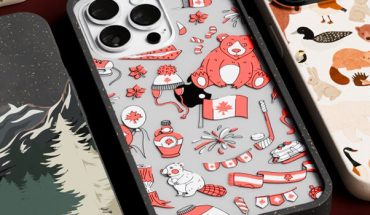New industry research into what is good and bad about social media networks is contributing to spirited conversations about their real value and impact.

Twitter Communications Network as captured and visualized by Netlytic, one of the analytic tools being developed at the Dalhousie Social Media Lab. CREDIT: Social Media Lab
Online enthusiasts and industry analysts, information managers and computer scientists, business leaders, academics, e-marketers, law enforcement, public security officials and government agents and more are all hoping to better understand and utilize social media.
Social media can expand some horizons, but can also put up prison walls, says Anne Nelson, an adjunct associate professor in the School of International and Public Affairs at Columbia University; her comments provocatively frame two extremes in the discussion about social media value and utility.
Between the expanded horizons and the prison walls may be another vantage point: How good a friend is social media? Would you continue to call someone your ‘BFF’ if they acted the way social networks do?
For example, would you still hang out with your buddy if he was constantly being used as a source of information about you – without your knowledge?
A new study by the Mediterranean Council for Intelligence Studies’ (MCIS) 2012 Intelligence Studies Yearbook points to the use of social media as “the new cutting edge in open-source tactical intelligence collection”, according to study co-author Joseph Fitsanakis.
Facebook, Twitter, YouTube, and a host of other social networking platforms are increasingly viewed by intelligence agencies as invaluable channels of information acquisition, he notes.
Is that how a good friend acts?
Or, what if your gal-pal turned out to be a phony, a fake, often pretending to be someone she’s not? Would she still be your trusted friend?
Social networks like Twitter and Facebook have acknowledged that some eight to ten percent of their members do not actually exist – and fake friends and false statements can not only undermine a trusting relationship, they can obscure the actual value of almost anyone who wants to appear more popular than might otherwise be the case.
Or, what if your friend turned out to be a real materialist, ‘only in it for the money’? What if they were constantly pushing you to buy things you may or may not want or even like? Would you still hang out?
Facebook’s “Open Graph” platform can, for example, tell all your friends immediately what you’re reading, and make recommendations that they should do so as well. Newly-approved Netflix integration could do a similar thing, both for your friends but also for movie marketers and rental services: your friends and family can see which shows and movies you’re watching, what you really think of their favourite movies, and where to conveniently buy all of the above.
“There’s an increasing interest in the private sector in knowing how clients are using their products and services,” described Dr. Anatoliy Gruzd, a researcher at Dalhousie University and a key figure in the launch of its Social Media Lab. “There’s a lot of interest in mining and discovering (consumers) thoughts and ideas about their products and services.”
Gruzd and his team are using advanced techniques and technologies to better understand big data as it applies to (and comes from) social media networks.
Visualization techniques, for example, are used to show how when and where a Twitter post originates, and how it and its retweets take flight online.
But rather than acting like an uncaged bird, quickly taking flight and reaching out to new arenas, social media messages often get stuck in an echo chamber. Such messages often obtain a certain self-validation, rather than be exposed to careful examination.
And what if having your good ol’ pal around was actually detrimental to making new friends?
New studies are showing that simply having a cell phone nearby, without even checking it, can be detrimental to our attempts at interpersonal connection.
Researchers say it is an unconscious reminder of the wider network to which we could connect, inhibiting our ability to connect with people right next to us. Social networks and cell phone usage may therefore reduce our special individual social consciousness simply by making it seem so universal and widespread.
But some social media observers and theorists say, sure, treat them like a real friend, and talk to your social network like you would a real friend, being honest and open in the process.

James P. Steyer, founder and CEO of an organization called Common Sense Media and other of Talking Back to Facebook.
James P. Steyer, founder and CEO of an organization called Common Sense Media and author of Talking Back to Facebook, is among them. He supports additional regulation and legislation for the Internet (particularly in terms of cyber-bullying); he encourages a parental time limit for kids’ use of online tools, and he encourages continued conversation among users (parent, teachers and children especially), but also between providers and users.
Industry observer, public speaker and book author B.J. Mendelson is a little more direct in what he has to say to social media networks, and he’s less enthused than many about what social media can or has achieved.

Industry observer, public speaker and book author B.J. Mendelson is a little more direct in what he has to say to social media networks.
His book title sums it up: Social Media Is BS.
-30-
So, whats your tech?
What do you think about social networks?
Are they good, bad, somewhere in between?



